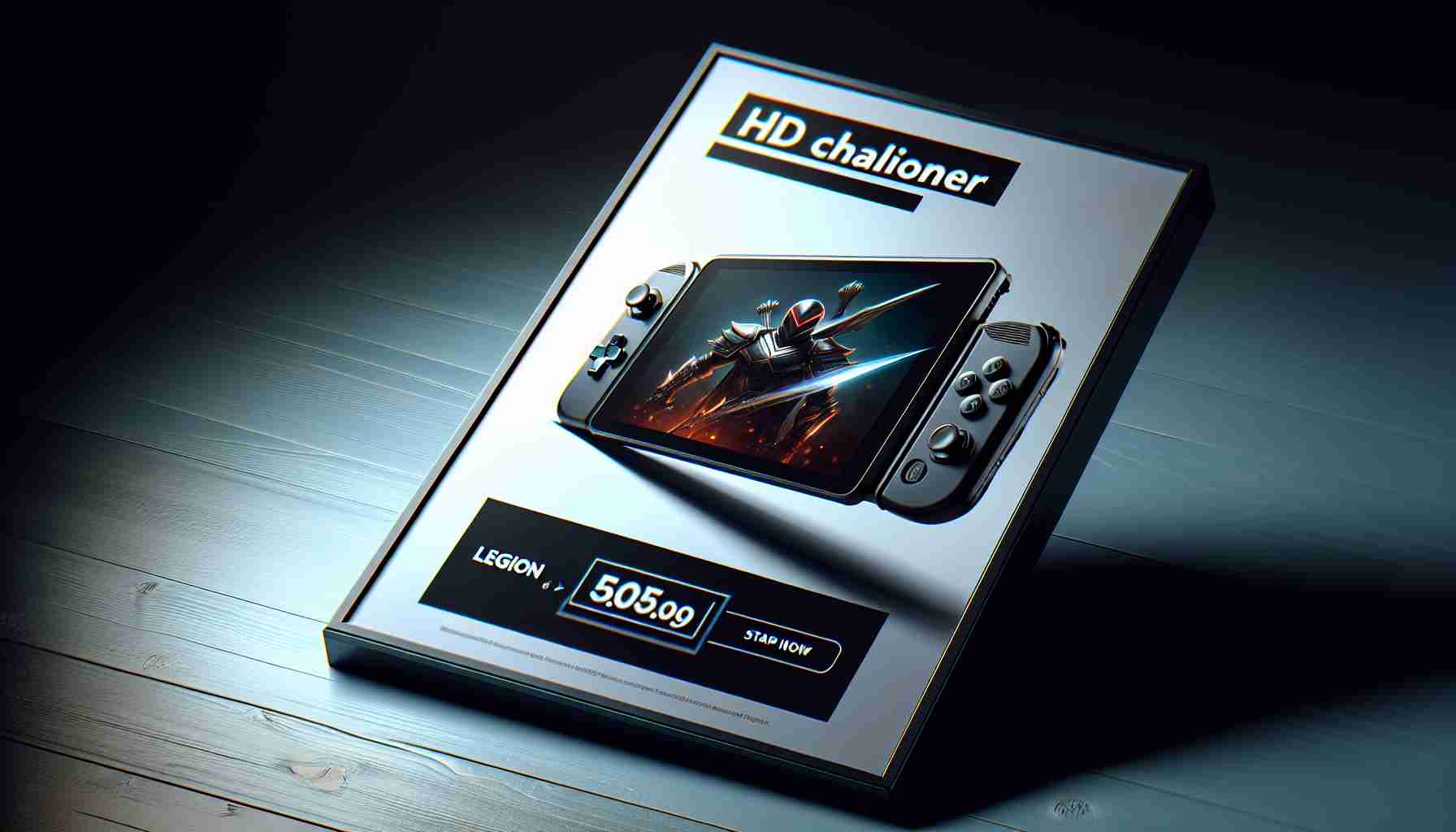Affordable High-Performance Gaming On-the-Go
Breaking into the world of portable gaming, the Lenovo Legion Go has just become more accessible for gamers searching for power and affordability. This handheld device, typically listed at $699.99, is now sold for only $624.95. Lenovo has standardized this console in a sleek Shadow Black color, providing users with a substantial 16GB of RAM and a robust 512GB SSD for excellent game storage capacity.
Rivaling the Best with Top-Notch Specs
Poised to take on established names like the Steam Deck and ASUS’ handheld offerings, the Lenovo Legion Go boasts an impressive 8.8-inch screen that showcases games in their full glory thanks to a 144Hz refresh rate. At its core, you’ll find the powerful AMD Ryzen Z1 Extreme processor complemented by state-of-the-art RDNA graphics. To round off its powerhouse status, the device comes with lightning-fast 7,500MHz LPDDR5X RAM and an NVMe M.2 2242 SSD —y ensuring a smooth and responsive gaming experience.
Designed with Gamers in Mind
Lenovo didn’t just focus on the internals; they paid special attention to user experience. The Legion Go features removable TrueStrike controllers akin to those found on the Nintendo Switch. Additionally, its integrated stand allows for easy tabletop gaming sessions. The device’s connectivity is modern and versatile, with DisplayPort 1.4 and USB 4.0 Type-C ports catering to a variety of accessories. The reliable 49.2Wh battery ensures that gamers can keep playing their favorite titles without constant recharging. With such a blend of performance and convenience, the Lenovo Legion Go makes an attractive proposition for any serious gamer looking to play on the move.
The Lenovo Legion Go’s entry into the handheld gaming market introduces several key questions and challenges.
Market Competition: How does the Lenovo Legion Go compare to dominant players such as the Nintendo Switch, Valve’s Steam Deck, and other handhelds from companies like ASUS in terms of gaming library, compatibility, and performance?
Portability vs. Performance: Can the Lenovo Legion Go strike a balance between the portability expected from handheld devices and the high performance that gamers desire, particularly for high-end games?
Price Point: Is the price point of $624.95 for the specs offered by the Lenovo Legion Go competitive enough to entice gamers away from other handhelds in the market?
Battery Life: How does the battery life of the Lenovo Legion Go hold up against the competition, especially during extended gaming sessions on the go?
Build Quality and Durability: What is the build quality of the Lenovo Legion Go, and how does it withstand regular usage and potential drops or other accidents that can occur with portable devices?
Advantages of the Lenovo Legion Go include:
– A powerful AMD Ryzen Z1 Extreme processor and state-of-the-art RDNA graphics for a high-performance experience.
– A 144Hz refresh rate on an 8.8-inch screen, which is particularly noteworthy for smooth gaming visuals.
– 16GB of fast 7,500MHz LPDDR5X RAM and a 512GB NVMe M.2 2242 SSD, providing swift response times and ample storage.
– Removable TrueStrike controllers and an integrated stand for flexible gaming modes.
– A variety of modern connectivity options including DisplayPort 1.4 and USB 4.0 Type-C.
– An attractive entry price, especially with the special offer.
Disadvantages may include:
– Potential limitations in the gaming library compared to established competitors.
– Battery life could be a concern, as high-performance specs may drain the battery faster than other handheld consoles.
– The handheld gaming market is already quite saturated, so the Lenovo Legion Go faces the challenge of carving out a significant user base.
In terms of related links, to get more information about the company and its products you can visit the official Lenovo website: Lenovo Official Website. Please ensure that the company has not renamed or rebranded itself since the knowledge cutoff date, and the URL provided is still valid and trustworthy.
The source of the article is from the blog anexartiti.gr
